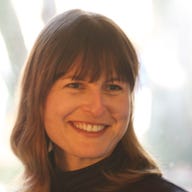Collaborating with Muslim countries for the sake of science

 Last month, U.S. Secretary of State Hillary Rodham Clinton announced new initiatives to bolster science and technology collaboration with Muslim communities around the world. The Secretary named Dr. Bruce Alberts, Dr. Elias Zerhouni, and Dr. Ahmed Zewail as the first three U.S. Science and Technology Envoys. The program is part of President Obama's New Beginning initiative with Muslim communities around the world that he launched in a June 4 speech in Cairo. He pledged that the United States would "appoint new science envoys to collaborate on programs that develop new sources of energy, create green jobs, digitize records, clean water, and grow new crops."
Last month, U.S. Secretary of State Hillary Rodham Clinton announced new initiatives to bolster science and technology collaboration with Muslim communities around the world. The Secretary named Dr. Bruce Alberts, Dr. Elias Zerhouni, and Dr. Ahmed Zewail as the first three U.S. Science and Technology Envoys. The program is part of President Obama's New Beginning initiative with Muslim communities around the world that he launched in a June 4 speech in Cairo. He pledged that the United States would "appoint new science envoys to collaborate on programs that develop new sources of energy, create green jobs, digitize records, clean water, and grow new crops."
Alberts is editor-in-chief of Science and professor emeritus in the department of biochemistry and biophysics at the University of California, San Francisco. He is the former president of the National Academy of Sciences, where he was instrumental in developing the landmark National Science Education standards that have been implemented in schools nationwide. I talked to Alberts about his new mission.
Tell me about your first envoy trip.
The last two weeks of January I’m going to Indonesia. I’ll also be involved with Pakistan. The point is to listen and see what they think we could do with them that would make the most sense. I don’t want to do things just because they sound good and look good. I want to make a difference. I think the only way is to create a true partnership. I don’t know exactly what that will look like. The first trip will be an enlisting tour—to make the right kinds of connections and get this thing moving in the right direction.
What’s the current state of science in these countries?
Pakistan has had a major tradition in science. We have a number Pakistani scientists in the United States, so we want to use the Pakistanis who are here to help us make connections. I haven’t met many Indonesian scientists.
What does the envoy mean for the U.S.?
I think it’s a great opportunity for the U.S., as President Obama emphasized in his Cairo speech, to reach out to the rest of the world and build bridges of trust between scientists--which is easy to do because we share common values. I think these kinds of liaisons between international scientists are very important, and I don’t think our government has done this very well in the past. I don’t think we have made nearly wise enough investments in how we support these endeavors. I have many opinions, and I’m glad the State Department is willing to listen.
What do American scientists think about the envoy?
American scientists are very interested in these interactions with the rest of the world. I think there will be exposure to new ideas that will make our own science more effective. My general feeling is that science and scientists should have a higher degree of influence in the world.
What challenges do you expect to face?
This is like doing science. We know where we want to end up but don’t know exactly how to get there. One challenging part is getting the resources on both sides to make it work.
Photo credit: Tom Kochel.
This post was originally published on Smartplanet.com